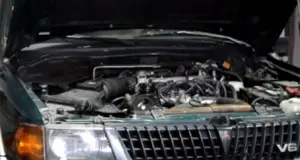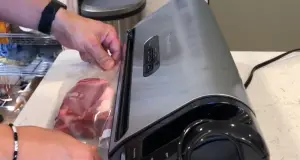Detailed Guide: Why do Diesel Engines need a Vacuum Pump?
We all have seen diesel engines throughout our lives. But the question is, how much do we know about the science behind it like why do diesel engines need a vacuum pump. Diesel engines are the powerhouse of heavy vehicles and locomotives.
You come across many trucks, heavy machinery, or loaders, etc., in your daily life. The engine that runs these heavy vehicles is typically a diesel engine. As the name suggests, the fuel in it is diesel. Compared to petrol engines, they are more effective, but they need vacuum pumps to run efficiently.
Working of Diesel Engines
While observing a big truck or any other heavy locomotive, there comes to how this machine works. Diesel engines use highly compressed air to burn diesel fuel. This burning of fuel converts chemical energy into mechanical energy. It provides power to move heavy vehicles. Diesel engines compress the air to comparatively high temperatures, and compression ignites the fuel. The fuel, under high pressure, is sprayed on the air stream.
The temperature of the air is more than the temperature of the fuel. Due to this, the combustion of fuel happens by reacting with the oxygen of the air. In any of your heavy vehicles, the diesel engine is also accompanied by turbocharged and aftercooled. It enhances power and productivity due to this.
Need of Vacuum Pump in Diesel Engine
If you are exposed to heavy vehicles, a vacuum pump is needed to run these diesel engines. A vacuum pump in any engine moves out all the air in the container of the brake promoter. By creating a vacuum, it helps in applying brakes. There is a lack of throttle valve in the diesel engine.
The throttle valve helps in the regulation of vapor in the machine. Instead of a throttle valve, the diesel engines use an exhaust valve, but it is not as smooth as a throttle valve. The exhaust valve works on the principle of compression release brake. But the process is not very efficient. So, in the inlet manifold, vacuum is not as created as in petrol engines.
Vacuum pumps assist in the application of brake boosters. Breakdown of brake booster can cause severe accidents. So, there is a necessity to establish a vacuum pump in the diesel engine. Diesel engines are often turbocharged. You might also observe that this vacuum pump in turbocharges also helps operate a variable nozzle system in some conditions. The increase in the usage of vacuum pumps can also be due to the increasing use of pneumatic devices.
The function of Vacuum Pump in Diesel Engine
To know the worth of vacuum pumps in your diesel engine, you must know about their usage. The vacuum pump helps in generating the required vacuum in the diesel engine. It helps to pull all the air out and provide assistance in the efficient brake application.
It draws out all the necessary gas molecules and maintains a specific vacuum inside the cylinder of your diesel engine. The principle of working of the diesel engine is compressed air, so it is a basic need to move all the air out while applying a brake. There is an already established vacuum pump in conventional diesel engines.
In diesel engines, usually, instead of a throttle valve, there is an exhaust valve. During an exhaust stroke, the valve closes and creates back pressure. The pressure then opposes the motion of pistons. Which eventually slowed the speed of the vehicle. These valves use the power of the engine to slow the rate of the car. Not only does it slow the pace, but it sometimes also reverses itself.
The whole process is not as smooth as it looks. Vacuum pumps serve the purpose of helping hands in such engines.
Performance of Diesel Engine after Vacuum Pump
After establishing the vacuum pump in the diesel engine, you might have noticed that the brake application is smooth. The risk of brake booster collapse is low, and the diesel engine is now running smoothly.
You can observe that the size of the vacuum port and tapping position are the critical factors for its effective functioning. The size of the vacuum port should correspond to the auxiliary tank. The slightest changes can seriously affect the brake application system.
As discussed earlier, these vacuum pumps also perform additional functions in turbocharged diesel engines. But this modification seems not so good for the primary part of the vacuum pump. Its primary function is greatly affected by it.
So, your vacuum pump should perform the independent operation of brake boosting instead of assisting in other tasks in the diesel engines. Its excessive use can also cause its wear and tear more often.
Suitable Vacuum Pump for Diesel Engine
There are many variants of vacuum pumps in the market. Vacuum pumps having back and forth motion of the piston or diaphragm are more valuable. However, with the advanced technologies’ vane-type vacuum pumps are also proved to be practical. Some other types include a single vane vacuum pump, an electrical vacuum pump, etc.
Single vane vacuum pumps are cylinder-headed, and a camshaft drives them. On the other hand, electrical vacuum pumps function freely in the diesel engine when needed. Their smooth application also increases their worth. In the diesel engines, their usage increases further. It is more likely to be damaged due to overuse.
Diesel Engines with Fail or No Vacuum Pumps
Any mechanical failure of a vacuum pump can directly influence the vehicle’s brake booster, risk many lives. Broken belts, electrical troubles, or loss of vacuum hoses can cause severe damage to vacuum pumps inside your vehicle’s diesel engine.
You will experience inefficient brake application, difficulty pressing the brake pedal, oil leakage, and unsatisfactory fuel productivity. You can determine the best vacuum pump while having a look at its efficiency. Cams, tappets, chains, belts, or cam discs are the modes that initiate vacuum pumps.
We hope that you know why do Diesel Engines need a Vacuum Pump and things you need to keep in mind while buying one.




